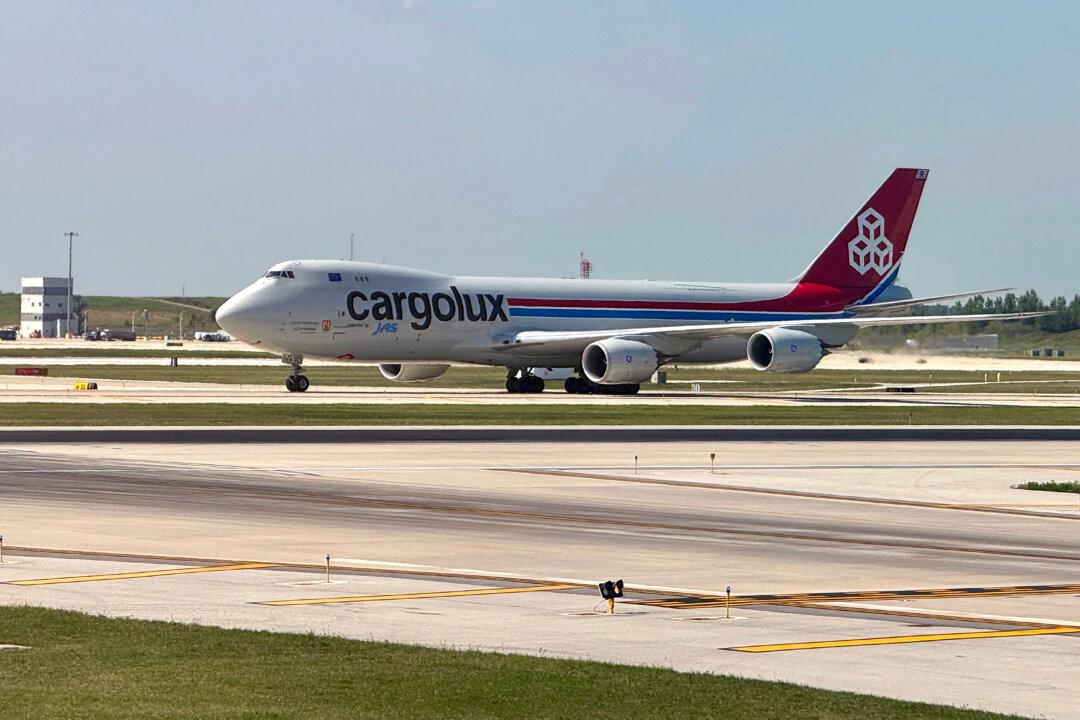A cargo flight operated by Cargolux, a Luxembourg-based airline partially owned by a Chinese company, appeared to divert from its scheduled route from China to Luxembourg and instead head toward Iran, prompting speculation about a possible air bridge between Beijing and Tehran amid heightened tensions in the Middle East.
Blaming the reports on “incorrect data” from public flight-tracking platforms, the company said: “We are aware of the recent information/statements circulating on social media regarding recent Cargolux flights alleged to be using Iranian airspace, based on the data received on a publicly available app. Cargolux would like to categorically state that none of its flights utilize Iranian airspace.”
“Our flight tracking systems provide real-time data, which confirms that no flight entered Iranian airspace,” Cargolux added. “Any claims to the contrary are completely unfounded. We remain committed to maintaining the highest standards of safety and transparency in all our operations.”
The Epoch Times has reached out to Cargolux for further clarification regarding the route and stopovers of flight CV9736.
Chinese firm Henan Civil Aviation Development and Investment Co. Ltd (HNCA) took a 35 percent stake in Cargolux in 2014. As part of the deal, Cargolux established Zhengzhou as its second hub after Luxembourg.
Meanwhile, there have been numerous reports of close alignment between the Chinese Communist Party (CCP) and the Iranian regime. Some analysts have warned of a China–Iran–Russia axis challenging U.S interests.
“Part of that alignment has to do with China’s economic dependence on Iranian oil. But China is also part of the anti-West axis that includes Iran as well as Putin’s Russia,” Clare Lopez, a former career CIA officer and former executive director of the Iran Policy Committee, told The Epoch Times in a 2023 interview.
Some experts say Iran has long sought security guarantees from China to protect it in case of fallout from its strategy of supporting various anti-Western proxies in the Middle East. Others say Beijing is using Iran as a destabilizing agent in the Middle East in support of its long-term goal of displacing the United States as the global hegemon.
Joseph Humire, executive director of the Center for a Secure Free Society, told The Epoch Times’ “American Thought Leaders” program in 2024 that China’s diplomatic efforts with countries like Iran are often about making a given region more “inhospitable” to the United States.
“The Sino-Iranian connection, in many respects, is probably the most dangerous one, even more so than the Sino-Russian connection, which is more talked about, I think, in foreign affairs,” Humire said.
Sunday’s incident comes as tensions in the Middle East remain high. Israeli forces last week launched a massive air campaign—code-named “Rising Lion”—targeting Iranian nuclear facilities and military sites. In retaliation, Iranian forces have fired waves of missiles and drones at Israeli targets.
Israeli military officials said Monday that Israel had destroyed 120 Iranian surface-to-surface missile launchers that had been firing at Israel, and that they had achieved “full air supremacy in the Tehran airspace.”
Israeli Prime Minister Benjamin Netanyahu has said that Operation Rising Lion could result in regime change in Iran, though that is not its goal.
The Iranian Ministry of Health claims that at least 224 people have been killed in the country since Friday, including several top military officials.
Late Sunday into early Monday, Iran launched a barrage of missiles at Israeli cities, including Tel Aviv and Petah Tikva, prompting a large-scale response from Israel’s multi-layered air defense system, which includes the Iron Dome.
Just before dawn, multiple explosions were heard in Tel Aviv—believed to be the result of interceptor systems neutralizing incoming projectiles. In Petah Tikva, Israeli authorities reported that one missile struck a residential building, shattering windows and damaging walls, though no fatalities were immediately reported.







